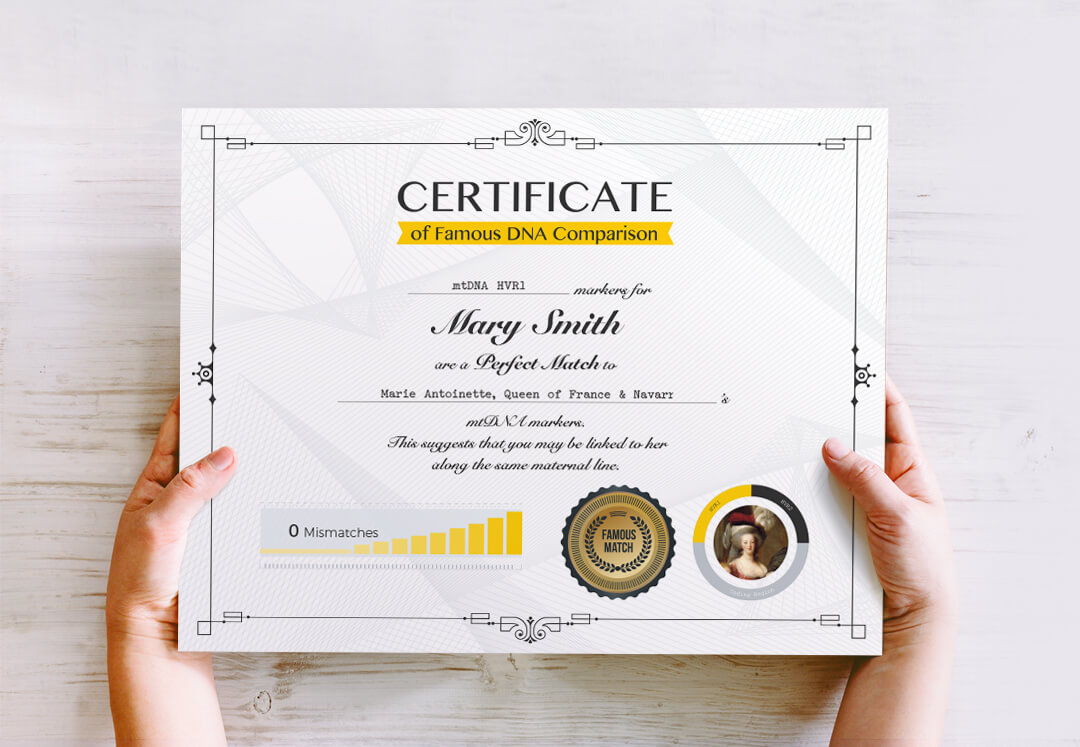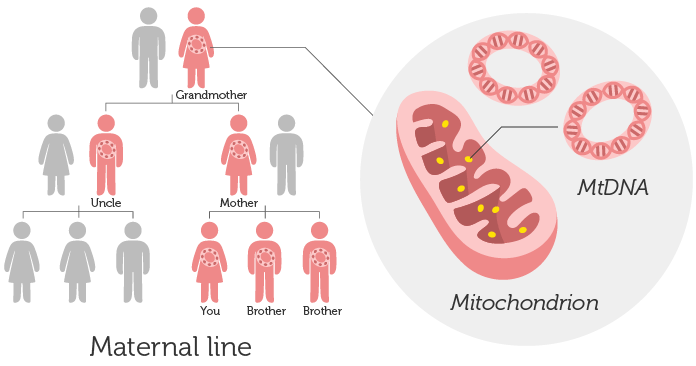How It Works
Compare your DNA to people from ancient Jerusalem to see if you may have descended from the same lineage. Begin by testing your mtDNA. Once your test is complete, login to your account and start comparing.
Create a Free Account
Create your free DNA Access account.
Test your DNA
Order a mtDNA test. Collect a painless mouth swab using the supplies provided in the kit. Mail samples back to the lab for testing.
Access All Web Apps
Once your results are available, they will be uploaded to your account. You can start using all our FREE ancestry apps immediately.










 Mitochondrial DNA Type 2, Tomb of the Shroud
Mitochondrial DNA Type 2, Tomb of the Shroud MMitochondrial DNA Type 3, Tomb of the Shroud
MMitochondrial DNA Type 3, Tomb of the Shroud Mitochondrial DNA Type 4, Tomb of the Shroud
Mitochondrial DNA Type 4, Tomb of the Shroud Mitochondrial DNA Type 5, Tomb of the Shroud
Mitochondrial DNA Type 5, Tomb of the Shroud

